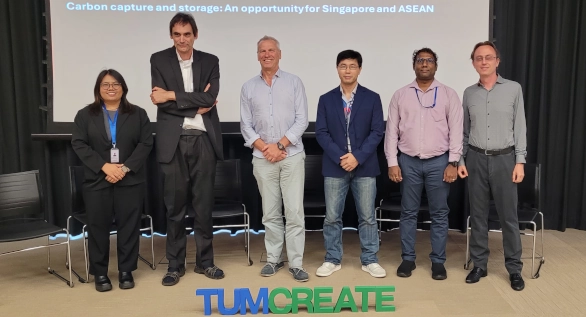TUMCREATE Workshop on Carbon Capture and Storage
Information

Event details
Description
Power generation in ASEAN still relies heavily on coal and gas. While renewable energies are on the rise, fossil fuels will still play a significant roles in the ASEAN power system in the next decades.
Carbon capture and storage (CCS) is a promising opportunity to decarbonise the power system without having to phase out fossil fuel power stations quickly. The region has quite a few depleted oil and gas fields that could be used as storage sites.
Six speakers presented various aspects of carbon capture and storage. Professor Thomas Hamacher from TUM put CCS into context of a sustainable transformation of the power system. Professor Harald Klein from TUM gave an overview of the past, present and potential future of CCS technology. Dr Balkumar Basant Kumar Pillai, research fellow at NTU, introduced his results on a techno-economic assessment of CCS. Associate Professor Wei Shengji from NTU addressed geological challenges of carbon storage. The talk concluded with a talk by Ms Shwe Sin Han, research associate at TUMCREATE, who introduced the results of her ASEAN energy system model with renewable energies and CCS. The main outcome is that renewable energies and CCS do not compete, but complement each other, i.e. fossil fuelled power stations with carbon capture come in mainly at night when generation from phovoltaics is absent.
The workshop was well received with and audience of about 50 guests attending in person and 50 online attendees. A workshop on renewable energies was announced to be held in a few months.

 Post
Post